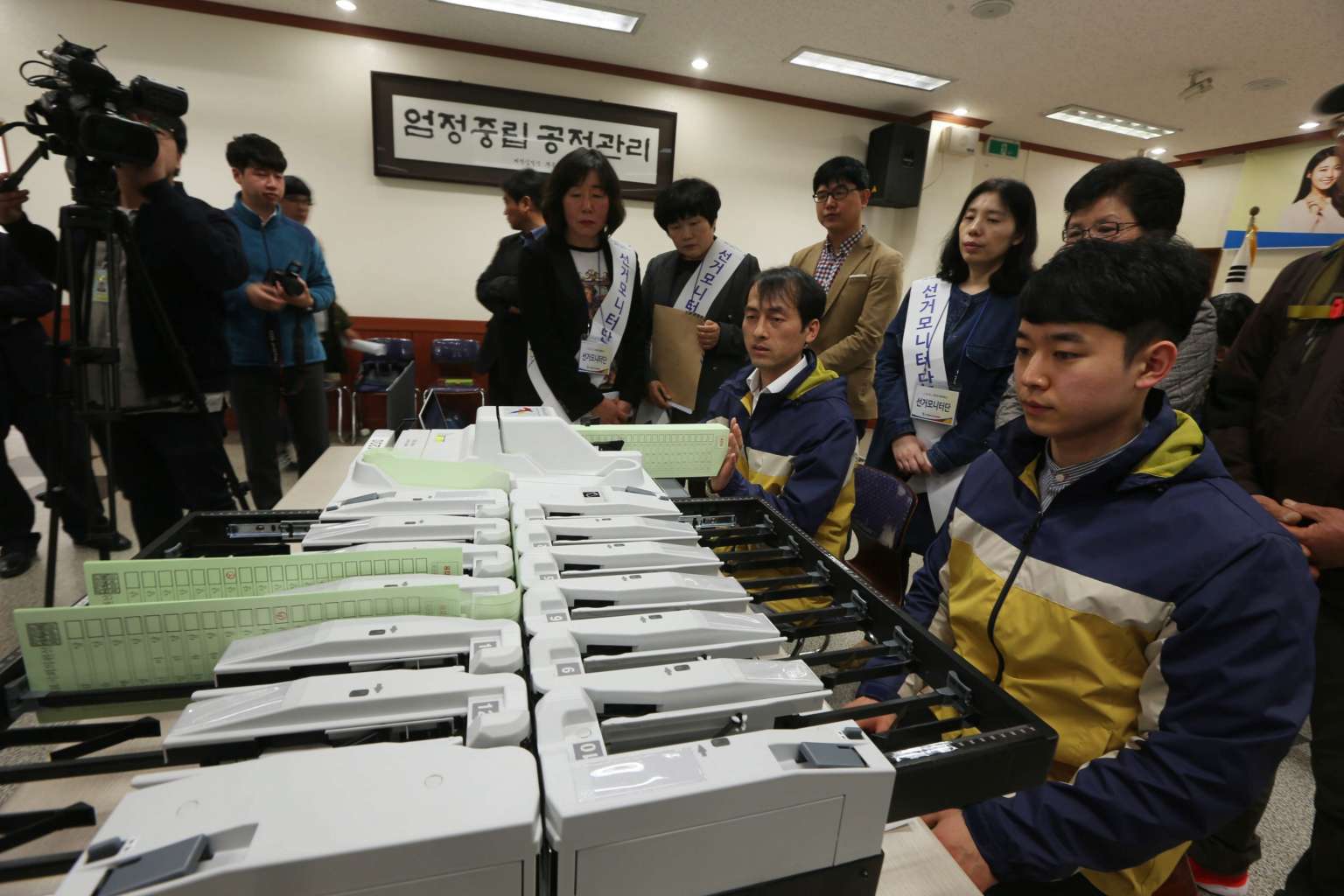EDITORIAL NOTES
League of ex-convicts in Seoul politics: The Korea Herald
Sign up now: Get insights on Asia's fast-moving developments

Regional election commission workers perform a public rehearsal for vote counting in South Korea on March 8, 2016.
PHOTO: EPA
Follow topic:
One of the many weird, yet unavoidable things in Korean politics is that many people with dubious pasts and low ethical standards are allowed to seek elected office.
One need look no further than the candidates for the April 13 parliamentary election, in which 1,102 candidates are running -- 944 for 253 constituency seats and 158 for 47 seats allotted for proportional representation.
Of the total, 38 per cent have at least one count of criminal record. This ratio goes up to 41 per cent for those who are contesting constituency seats.
The ratio is almost twice as high as that for the current 19th National Assembly, which attests to the fact that the qualification bar for parliamentary candidates has been lowered.
The bigger problem is that the crimes committed by the candidates are so diverse and serious -- like drunken driving, fraud, embezzlement, bribery, gambling, adultery and violence. It indeed is an assortment of crimes. In addition, there are habitual lawbreakers -- two candidates have 10 counts on their criminal records.
Tax records of the constituency candidates also show that many with dubious pasts seek to gain parliamentary seats. Nineteen candidates have not paid a single won in taxes during the past five years, and 13.7 percent of the candidates have taxes in arrears. All of these tax delinquents have deposited 15 million won (S$17,619) at the National Election Commission for their candidacy.
NEC data tells us that a much smaller proportion of candidates completed their mandatory military duty. Of the 844 male candidates, 143 or 17 per cent were not drafted for some reason. That compares to just 2 per cent for Korean men in general, and this testifies to the past practice in which those with money or power often found illicit ways for their children to dodge the draft.
These findings remind us that the election laws and the candidate vetting processes of political parties fall far short of weeding out the bad guys and that the job should be left to voters.
One of the first things needed to make the 20th National Assembly better than the current parliament is for voters to look into the records of candidates and not vote for those with questionable pasts.
----------------
The Korea Herald is a member of The Straits Times media partner Asia News Network, an alliance of 22 newspapers.
----------------
The Korea Herald is a member of The Straits Times media partner Asia News Network, an alliance of 22 newspapers.

